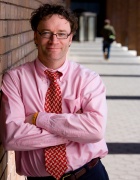Rufus Barfield, PhD
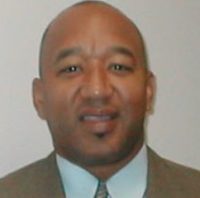
Associate Professor, University of Central Florida
Health communication and organizational communication
Rufus Barfield is an associate professor of human communication at the University of Central Florida. He earned a bachelor’s degree and a master’s degree from Bowie University and a doctoral degree in organizational communication from Howard University. He has taught courses on business communication, conflict management and group dynamics. Barfield’s research interests are focused on health communication, and he is a past recipient of the Bayer Health Care Communication Grant.
Rufus has worked with the the Florida Department of Health help to show how all community-based organizations are not the same. In addition, Rufus worked the Closing the Gap project and showed how rural communities in the state of Florida had high numbers of undocumented workers that required medical services but because of their status presented a challenge in meeting healthcare needs.
David Buller, PhD

Research Director, Klein Buendel
Health communication, health education
David is an expert in health communication, conducting research sponsored by the National Cancer Institute, the Robert Wood Johnson Foundation, and the U.S. Centers for Disease Control and Prevention since 1979. David was previously a Professor at the University of Arizona, a Senior Scientist at AMC Cancer Research Center, and the Harold Simmons Senior Scientist for Health Communication and Vice President of The Cooper Institute – Denver.
Many of David’s current projects are centered on educating targeted groups about relatively small changes they can make in their lives that can save them from years of chronic illnesses. Avoiding extreme sun exposure, developing healthier eating habits, and avoiding cigarette smoke are the focus of some of David’s most recent and successful programs. His Sunny Days Healthy Ways program has been recognized as a national resource for complying with the CDC and American Cancer Society’s recommendations for skin cancer education.
Judy C. Chang, PhD

Associate Professor, University of Pittsburgh’s Center for Women’s Health Research and Innovation (CWHRI)
Health Communication, women’s health, preventative health communication
Dr. Chang’s work has been primarily focused on violence against women, specifically on issues regarding health care screening and interventions for intimate partner violence. She has participated in multiple collaborative groups exploring various topics in women’s health services and outcomes, and is currently expanding her research to examine patient-provider communication in women’s health and obstetrics/gynecology. Other research interests include preventive health education and screening as well as intervention for risky behaviors and stigmatizing conditions, and she has had experience with qualitative methodology and survey research. She co-developed and co-teaches a course on qualitative research methods through the Center for Research on Health Care. Dr. Chang is a core member of the Magee-RAND Women’s Health Initiative, a BIRCWH Scholar, a core faculty member of the Center for Research in Health Care, and she serves on the Steering Committee for the University of Pittsburgh Institute on Doctor-Patient Communication.
Olga Davis, PhD
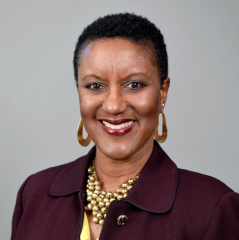
Professor, Arizona State University
identity, social determinants of health, health literacy, critical cultural studies, feminist and womanist performance
Olga Idriss Davis is passionate about enhancing communication to improve the health and wellbeing of underserved populations. She helped establish a health coalition for Refugee women in Maricopa County and was appointed by Governor Napolitano to serve on the State Commission on Women’s and Children’s Health. In addition, Dr. Davis is intricately involved in promoting health among the African American community in Arizona. She works with the Phoenix-based Coalition of Blacks Against Breast Cancer and has created a narrative play, The Journey: Living Cancer Out Loud, based on interviews of the experience of African American survivors and caregivers of breast cancer which has been performed in various community and hospital venues in Phoenix and Scottsdale. Raising awareness in Black barbershops, Dr. Davis addresses knowledge of cardiovascular disease among African American men in Phoenix, Arizona.
Thomas Feeley, PhD
interpersonal and health communication
Thomas Feeley is interested in the identification, measurement, and testing of social influence processes in applied contexts such as health and organizations. Dr. Feeley studies the specific process and effect of mass communication campaigns on attitude change and behavior, and is interested in the measurement in higher education, specifically in bibliometrics.
Carla L. Fisher, PhD
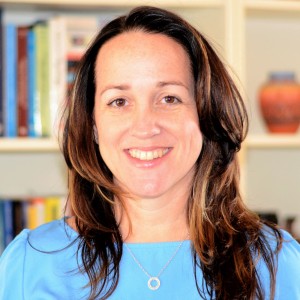
Assistant Professor, University of Florida
women’s health concerns, intergenerational dynamics, mother-daughter interaction, and cancer coping and prevention/risk
Carla L. Fisher is an Assistant Professor in the Advertising Department and Affiliate Member of the STEM Translational Communication Center, UF Health Cancer Center, and Center for Arts in Medicine. She was a Pre-doc Fellow with the National Institute on Aging (NIA) with summer post-doc training from the National C
ancer Institute (NCI). Using a life-span, developmental lens she examines the importance of family communication to health in the family environment and clinical setting. She conducts translational narrative-focused, mixed-method research with multi-method qualitative designs and collaborates with diverse health practitioners and medical institutions to translate her research to practice. Her work has been funded at the federal, private, and local levels and published in journals like Psycho-Oncology, Patient Education & Counseling, Journal of Genetic Counseling, Health Communication, and Journal of the American Board of Family Medicine. She has been an invited health behavior expert for government including the USAID, Office of Women’s Health (OWH), and the Military Primary Care Research Network.
Fisher has received international and national awards for her research on mother-daughter communication, breast cancer risk, coping, and prevention, in which she has collaborated with global leaders like Mayo Clinic and Memorial Sloan-Kettering. Her book Coping Together, Side by Side: Enriching Mother-Daughter Communication across the Breast Cancer Journey is the first translational, research-based book on the psychosocial experience of cancer from the mother-daughter perspective. It has been commended for its translational value to practitioners and families by clinicians at the Johns Hopkins Breast Center and UCLA School of Medicine. A recent review of her book can be found here. Her work has been covered by media outlets like The Washington Post, Northern Virginia Magazine, and AZ Central/Arizona Republic.
Nancy Harrington, PhD

Preconference Planner Professor and Associate Dean for Research, University of Kentucky
Health communication, interpersonal communication, and persuasive message design
Nancy Grant Harrington (PhD, 1992, University of Kentucky) is the Douglas A. and Carole A. Boyd Professor of Communication and Associate Dean for Research in the College of Communication and Information, University of Kentucky. She also holds an academic appointment in the School of Public Health and is a faculty associate of the Multidisciplinary Center on Drug and Alcohol Research.
Dr. Harrington’s research focuses on persuasive message design in the health behavior change context, particularly as it relates to risk behavior prevention/health promotion and interactive, tailored health communication using computer technology. She has been a principal investigator, co-investigator, or principal evaluator on several NIH-funded and CDC-funded studies totaling nearly $8.5 million. She has publishe
d close to 60 journal articles or chapters in outlets such as Health Communication, Communication Monographs, Communication Yearbook, and Health Education & Behavior. She is co-editor of eHealth Applications: Promising Strategies for Behavior Change (Routledge, 2012) and editor of Health Communication: Theory, Method, and Application (Routledge, 2015).
Lynn Harter, PhD
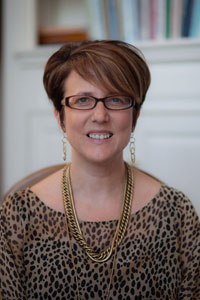
Professor and Co-Director of the Barbara Geralds Institute for Storytelling and Social Impact
Narrative Approaches to Health; Organizing for Social Change; Social Justice; Feminist Theory
Guided by narrative and feminist sensibilities, my scholarly agenda focuses on the communicative construction of possibility as individuals and groups organize for survival and social change amidst embodied differences. My research encompasses a range of issues including pediatric cancer care, disability-related concerns, the organizing of healthcare for undeserved populations, poverty and homelessness. The various strands of my program of research are connected by a primary concern: how do symbolic, material, and corporeal resources foster resiliency among individuals living in vul
nerable bodies?
Brad Hesse
 Senior Advisor Office of the Associate Director (OAD) Behavioral Research Program (BRP)
Senior Advisor Office of the Associate Director (OAD) Behavioral Research Program (BRP)
Health communication, behavioral research
Bradford (Brad) Hesse was appointed Chief of the National Cancer Institute’s (NCI) Health Communication and Informatics Research Branch (HCIRB) in November, 2006. He served as the Acting Chief of HCIRB from 2004-06.
Brad’s professional focus is bringing the power of health information technologies to bear on the problem of eliminating death and suffering from cancer, a cause to which he remains steadfastly dedicated. While at the NCI, he has championed several initiatives that evaluate and progress the science of cancer communication and informatics, including the Health Information National Trends Survey (HINTS) and the Centers of Excellence in Cancer Communication (CECCR).
As director of NCI’s biennial Health Information National Trends Survey (HINTS), Brad is responsible for leading a
team of scientists in the development and execution of this nationally representative, general population survey of American adults. HINTS, now entering its fifth iteration, systematically evaluates the public’s knowledge, attitudes and behaviors relevant to cancer control in an environment of rapidly changing communication technologies.
Jessica Katz Jameson

multi-sector collaboration, organizational communication, conflict management, conflict in health care settings, the role of emotion in conflict management, workplace mediation and dispute system design, and nonprofit leadership
Professor Jameson has facilitated mediation training for faculty and college administrators and serves as a mediator for NC State’s Employee Mediation Program. Other professional activities include workshops on conflict management and the facilitation of organizational planning sessions. Professor Jameson is an Engaged Faculty Fellow and an Affiliated Faculty with the Institute for Nonprofit Research, Education, and Engagement.
Craig LeFebvre, PhD

Co-Investigator and Research Professor, University of South Florida
Health communication, public health and social change
R. Craig Lefebvre, PhD is an architect and designer of public health and social change programs. He is chief maven of socialShift, a social design, marketing and media consultancy, Lead Change Designer at RTI International, and Research Professor at the College of Public Health, University of South Florida. An internationally recognized expert in social marketing, Craig has been involved with several hundred projects in global, national, state and community contexts. He is the author of over 70 articles and chapters and serves on the Editorial Boards of Journal of Social Marketing and Social Marketing Quarterly. Craig is a Founding Board Member of the International Social Marketing Association, a Fellow in the Society for New Communications Research and an elected member of the American Academy of Health Behavior. Dr. Lefebvre received his Ph.D. in Clinical Psychology from North Texas State University and produces the blog On Social Marketing and Social Change [ http://socialmarketing.blogs.com].
Rob Logan, PhD
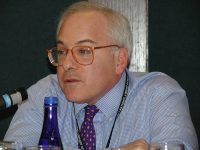
Senior Staff, U.S. National Library of Medicine
Health literacy, consumer health informatics evaluation, public understanding of science and medicine, theory and applications of Q methodology, and journalism ethics.strategic communication
Robert A. Logan Ph.D. is a member of the senior staff of the U.S. National Library of Medicine and a professor emeritus at the University of Missouri-Columbia School of Journalism. Logan was a professor, associate dean, and director of the Science Journalism Center at the Missouri School of Journalism until January 2003. He joined the National Library of Medicine (NLM) within the (U.S.) National Institutes of Health in February 2003.
Dr. Logan is the project officer for several NLM research contracts, directs the Association for Health Care Journalists-NLM Journalism Fellows program, and participates in the National Academy of Medicine’s Health Literacy Roundtable. He writes, narrates, and produces NLM’s weekly ‘To your health’ podcast.
May O. Lwin
 Associate Professor, Nanyang Technological University
Associate Professor, Nanyang Technological University
Strategic and health communication, digitally mediated health communication
May Lwin is an Associate Professor in Strategic & Health Communication at Wee Kim Wee School of Communication and Information, Nanyang Technological University (NTU), Singapore. May is Associate Dean for the College of Humanities, Arts & Social Sciences and the Director of NTU’s University Scholars Program.
May’s research projects involve the design, utilization and assessment of digitally mediated health communication systems to improve public health. May has won several research grants from external institutes and organizations in Asia. Her research on digital technology use in promoting physical activity and nutrition education amongst children and families is being piloted in numerous schools and a children’s hospital in Singapore. She also investigates how mobile media can battle infectious diseases. Her mobile and digital systems have effectively focused on vector and influenza efforts with health workers and the public in Singapore and Sri Lanka.
John C. Pollock, PhD, MPA
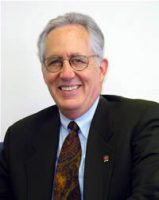
Professor, The College of New Jersey
Health Communication, International Communication, Mass Communication, Content Analysis, Survey Research, Research Methods, public health and social change
John C. Pollock, a Professor in the Communication Studies Department, The College of New Jersey (TCNJ), received his B.A. from Swarthmore (political science), M. (I) P.A. from the Maxwell School at Syracuse (international public administration) and Ph.D. from Stanford (comparative politics/Latin America). He also studied at the Johns Hopkins School of Advanced International Studies as a Ph.D. candidate. His current teaching and research interests include Health Communication, Human Rights, Journalism, International Communication, Mass Communication, and Research Methods.
Dr. Pollock has taught at Rutgers University and the City University of New York (Queens College) and has conducted research in India and Latin America (Colombia), serving as director of the Latin American Institute at Rutgers. Dr. Pollock serves on five editorial boards –Journal of Health Communication, Communication Theory,The Atlantic Journal of Communication, Journal of Media Sociology, and Mass Communication and Society (book review editor). He has authored, co-authored, or edited five books, among them: Tilted Mirrors: Media Alignment with Political and Social Change – A Community Structure Approach(Hampton Press, 2007); and Media and Social Inequality: Innovations in Community Structure Research (Routledge, 2013). Both books were selected as finalists for the Jane Jacobs Award for best book in urban communication by the Urban Communication Foundation.
Scott Ratzan, MD, MPA

VP Global Corporate Affairs, Anheuser-Busch InBev
Public health, mobile health communication, and health literacy
Scott has made major contributions to improve public health. Pioneer in health literacy and mobile health communication. Editor-in-Chief, Journal of Health Communication: International Perspectives. Member: Board of Scientific Counsellors, Centers for Disease Control and Prevention Office of Infectious Disease; RAND Health Advisory Board; Massachusetts General Hospital Center for Global Health Advisory Board. Vice-Chair, health, Business Industry Advisory Committee to the OECD. Adjunct Professor, Columbia Univ. Mailman School of Public Health. Appointments at Tufts Univ. School of Medicine and George Washington Univ. School of Public Health and Health Services.
Kami Silk, PhD
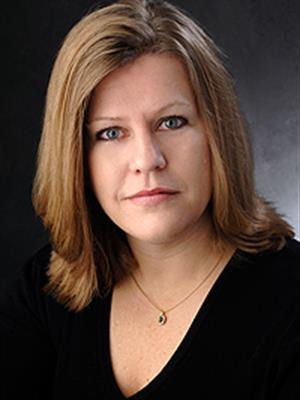
Associate Dean of Research and Director of Master’s of Health and Risk Communications, Professor, Appointment with AgBioResearch
Kami Silk, (Ph.D., University of Georgia) was appointed as Rosenberg Professor and Chairperson of the Department of Communication at the University of Delaware in the Fall of 2018. She previously served as the Sr. Associate Dean for Research in the College of Communication Arts and Sciences and Professor in the Department of Communication and AgBioResearch at Michigan State University. Dr. Silk is a health communication researcher who investigates how to communicate effectively to promote positive health outcomes among the lay public. Her most recent work has focused on social norms and persuasive message design across the health issues of breast cancer risk reduction, suicide prevention, and improving nutritional practices among adolescent mothers for obesity reduction among infants. Her research has been published in the Journal of Health Communication, Health Communication, Social Science & Medicine, Journal of Nutrition Education & Behavior, and Health Promotion & Practice. Dr. Silk is a researcher with the Breast Cancer and Environment Research where she has served as the PI of three projects and as a Co-I of another project. Her BCERP work includes communication science research and outreach activities to educate girls, parents, and pediatric health care providers about the links between the environment and breast cancer.

